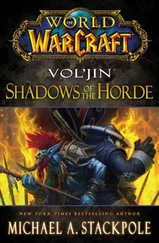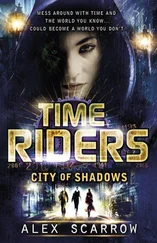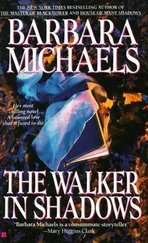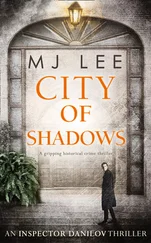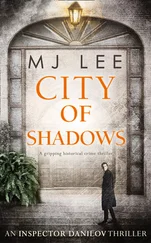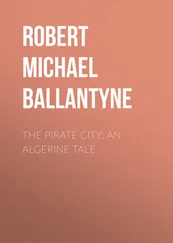Michael Russell - The City of Shadows
Здесь есть возможность читать онлайн «Michael Russell - The City of Shadows» — ознакомительный отрывок электронной книги совершенно бесплатно, а после прочтения отрывка купить полную версию. В некоторых случаях можно слушать аудио, скачать через торрент в формате fb2 и присутствует краткое содержание. Жанр: Исторический детектив, на английском языке. Описание произведения, (предисловие) а так же отзывы посетителей доступны на портале библиотеки ЛибКат.
- Название:The City of Shadows
- Автор:
- Жанр:
- Год:неизвестен
- ISBN:нет данных
- Рейтинг книги:5 / 5. Голосов: 1
-
Избранное:Добавить в избранное
- Отзывы:
-
Ваша оценка:
- 100
- 1
- 2
- 3
- 4
- 5
The City of Shadows: краткое содержание, описание и аннотация
Предлагаем к чтению аннотацию, описание, краткое содержание или предисловие (зависит от того, что написал сам автор книги «The City of Shadows»). Если вы не нашли необходимую информацию о книге — напишите в комментариях, мы постараемся отыскать её.
The City of Shadows — читать онлайн ознакомительный отрывок
Ниже представлен текст книги, разбитый по страницам. Система сохранения места последней прочитанной страницы, позволяет с удобством читать онлайн бесплатно книгу «The City of Shadows», без необходимости каждый раз заново искать на чём Вы остановились. Поставьте закладку, и сможете в любой момент перейти на страницу, на которой закончили чтение.
Интервал:
Закладка:
Stefan didn’t go straight back to the farm. He took the road to Baltinglass, to collect cattle feed for his father. On the way he stopped at the post office to post the letter he had written to Hannah Rosen. He didn’t know where she was, but he addressed it to her father’s house as she’d asked him to. It would find her eventually. She wouldn’t like what he had to tell her. She had trusted him. He wanted to believe it was more than trust. But there was nothing he could do now. The investigation into the deaths of Susan Field and Vincent Walsh was over. The files were sitting in a Special Branch office somewhere in Dublin Castle, and he had no reason to believe they would ever be opened again. It was beyond his control, but he still couldn’t help feeling he had let her down. He knew how much it would matter to her. He wondered if it mattered as much to her as it did to him that they would never see each other again. He couldn’t know. And even if it did, it didn’t change anything. The case was finished. It was no use pretending otherwise.
PART TWO
Mr Sean Lester, the League of Nations High Commissioner of Danzig, was publicly insulted yesterday by Herr Greiser, President of the Senate, who threatened that Mr Lester might be forced to leave the city. Mud was thrown at the Commissioner’s car by a crowd of people as he drove through the city. Feeling in Danzig is running very high. The Diet was dissolved at the beginning of February, and new elections have been fixed for April 7th. At the last elections in May, 1933, the Nazis gained 38 seats out of 72, and thus had a small majority. They now aim at eliminating the Opposition altogether. Mr Lester, who has the task of holding the balance between the rivals, has apparently been suspected of partiality.
The Irish Times13. Oliva Cathedral
Danzig, April 1935
Hannah Rosen arrived in Trieste on the train from Milan. After Venice it followed the Adriatic south, running beside the sea all through a long afternoon as it finally approached the port. It was April and it was already hot. She knew people here. In the Via del Monte, where the city started to wind up the hillside overlooking the Gulf of Trieste, was the headquarters of the Jewish Agency. It was there for the thousands of men, women and children who came every year to take the boats to Jaffa and Haifa to start a new life. Less than twenty years ago, Trieste had been the main port of the Austro-Hungarian Empire; it was still the funnel into the Mediterranean for most of Central Europe. Few of the Jews who travelled to Trieste had much in common with the young socialists and communists who staffed the Jewish Agency office; they were simply people who believed that keeping your head down wasn’t going to be enough. They were running from what was to come, and they were no more than a drop in Europe’s Jewish ocean.
Hannah’s job was over. In Leeds, in London, in Manchester, in Bournemouth, in Lyons, Paris, Amsterdam, Milan — she had done what she had been sent to do. They weren’t large sums of money. No one ever said that now it was for guns, not tractors, but people had stepped back. Not everyone was so sure about guns. Yet the money still had to be moved, in cheques, money orders, bonds; it still had to reach its destination in ways the British government and the Palestine Mandate Police could not trace.
Leaving the Stazione Centrale, she didn’t head for the centre of Trieste and the Via del Monte. She turned left and walked the few hundred yards to the harbour. At the offices of the Adriatica Line she rebooked her next day’s passage to Haifa on the SS Marco Polo for a fortnight’s time. Then she turned her back on the Adriatic Sea and returned to the railway station. Just before seven that evening she was sitting in a compartment on the sleeper to Vienna, heading for the Free City of Danzig, at the other end of Europe, via Vienna, Prague and Warsaw, a route that would avoid her going through Germany. It was the only precaution she felt she needed to take.
From Trieste she shared her sleeper with a woman who spoke a little English. Hannah’s German wasn’t good, and it was coloured in ways she had been unaware of by the Yiddish her grandparents had spoken. She was surprised how easily it identified her. The woman was from Vienna, middle-aged, well-dressed and Jewish, and perceptive enough to know immediately that Hannah was Jewish too, despite the name she was travelling under, Anna Harvey. The conversation slipped from English into German and back again, but once the woman was in full flight she just kept talking; all Hannah had to do was listen to her, or at least pretend to. The woman didn’t make any real distinctions between England and Ireland, and if there were any she wasn’t interested in them. From Vienna it looked like the same place. She did think the English should keep out of European politics though. They had the rest of the world to make trouble in. As for the Nazis, she told Hannah everyone made too much of a commotion about them. The Germans had always beaten up Jews; in Vienna anti-Semitism was a fact of political life. It came and went, loud and soft, and in between people got on with their lives. Adolf Hitler was an Austrian, that’s all you needed to know. It was second nature to him to use anti-Semitism to get to power, but now that the reality of government had dawned, things would calm down; people would have to get on with their lives. It would be business as usual. It always was. As for the Jews who made too much fuss about all that, they didn’t help anybody — socialists, communists, liberals, Zionists, they should shut up. Now it was all very loud; soon it would be quieter again. If you shut up it always was.
The next day, on the train from Vienna to Warsaw, she sat in the dining car some of the way with an elderly couple from Czechoslovakia, though as Germans born in the Sudetenland they didn’t consider their country to be a country at all; they belonged in Germany. They didn’t like politics; politics was what was wrong with Europe. They certainly didn’t like everything Adolf Hitler did. He was too vulgar by half. He had saved Germany from socialism, that was undeniable, but the old man wasn’t sure he was good for business. They were delighted to discover Hannah was Irish. They had visited Ireland thirty years ago when the man had gone to England on business. As they talked about Dublin before Hannah was born it was like listening to her father and mother. They made her smile, a sweet couple, still very much in love in their seventies. At one point, the old man took his wife’s hand, telling the story of how they’d met, and he held it tenderly for half an hour. They were good company at first, and that part of the journey went quickly. Then in Katowice, in Poland, a Jewish man in the dark clothes of orthodoxy asked if he could borrow the old man’s Austrian newspaper. It was passed across with a polite smile, and the conversation about Ireland continued. The Jew returned the newspaper when he got off at Cze?stochowa. The old man shook his head sadly. The Jews had a lot to answer for. Politics was what was wrong with Europe and the Jews were the ones who controlled politics, the way they controlled everything. Hadn’t they started the war that destroyed Austria and brought Germany to its knees? Hadn’t they turned Russia into an atheistic wasteland? They were everywhere. You couldn’t move for them in Poland. She was lucky to live in Ireland, in a country without Jews. No, they didn’t like everything Adolf Hitler did, but he was right about the Jews. As they left the train at Warsaw, the old lady kissed Hannah and told her how much she reminded her of her daughter.
Two days after she had left Trieste, the train from Warsaw crossed the border into the Free City of Danzig. Hannah was almost at the end of her journey. There had been three months of silence from Ireland as far as Susan Field was concerned. She knew from her father that Brian Field had been to Pearse Street to see Inspector Donaldson several times. There were no developments. The police in Germany had been contacted about the whereabouts of Hugo Keller, with no results. As Keller was an Austrian citizen they assumed he must be in Austria. No one knew whether the police in Vienna had been contacted. None of it was surprising, and Hannah didn’t need to be there to hear what went unspoken. The choices Susan Field had made were not the choices any decent woman would even contemplate. She was an unsolved murder, but the Gardai weren’t looking for a solution, any more than they had looked for an explanation when she first disappeared.
Читать дальшеИнтервал:
Закладка:
Похожие книги на «The City of Shadows»
Представляем Вашему вниманию похожие книги на «The City of Shadows» списком для выбора. Мы отобрали схожую по названию и смыслу литературу в надежде предоставить читателям больше вариантов отыскать новые, интересные, ещё непрочитанные произведения.
Обсуждение, отзывы о книге «The City of Shadows» и просто собственные мнения читателей. Оставьте ваши комментарии, напишите, что Вы думаете о произведении, его смысле или главных героях. Укажите что конкретно понравилось, а что нет, и почему Вы так считаете.

